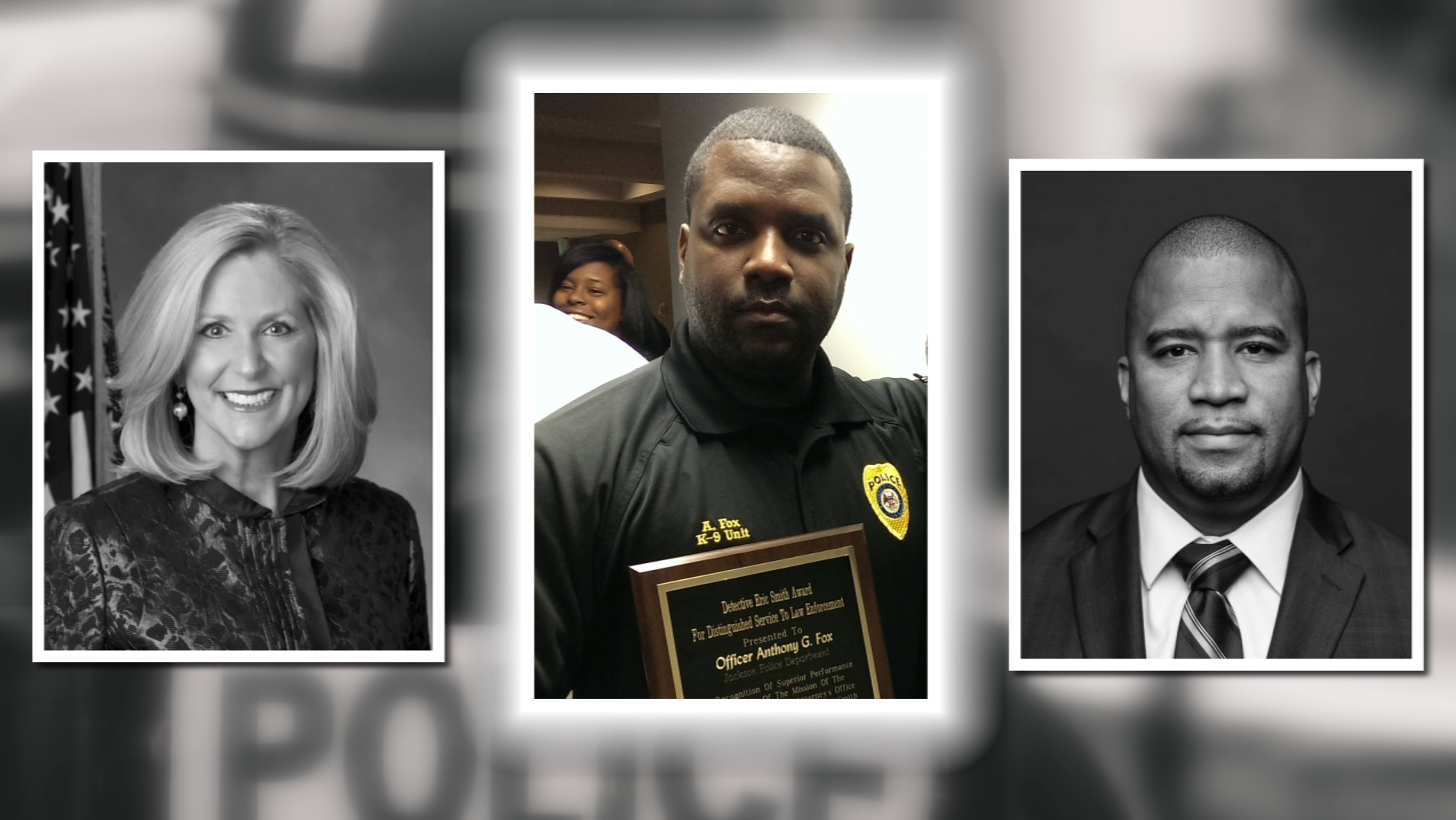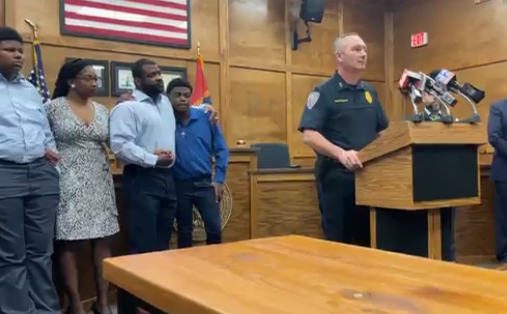Editor’s note: The document from the AG’s Office is at the bottom of this story.
A legal battle continues to rage in the controversial trial, conviction, and incarceration of former Jackson and Clinton police officer Anthony Fox on a charge of culpable negligence manslaughter in the death of George Robinson in early 2018.
Fox, who has now been in prison for over a year, was convicted in what many in the legal community have admitted was an extremely problematic trial of culpable negligence manslaughter in Robinson’s death. Robinson, AKA “Killer George”, was allegedly seen making a drug deal and a day and a half after officers removed him from the vehicle and he scraped his forehead on the pavement, he died of a brain bleed.
Several medical experts, some working pro bono, testified to the fact that Robinson was not slammed, stomped, kicked, and beaten as the District Attorney’s office claimed in the indictment. The District Attorney’s office continued in spite of those testimonies to assert that he had.
Last week, Attorney General Lynn Fitch filed a response to District Attorney Jody Owens’ amicus brief to the Mississippi Court of Appeals, and it started with the words, “This Court should reverse Anthony Fox’s culpable-negligence manslaughter conviction and render judgment in his favor.”
Fitch’s brief continues to be just as clear, stating, “As the State has explained, the evidence at trial was insufficient to sustain his conviction. … The Hinds County District Attorney has filed a brief contesting the State’s arguments. That brief gets the law wrong, the record wrong, and this case wrong. Officer Fox never should have been convicted. This Court should reverse and render.”
The prosecution’s amicus brief continued to assert what the AG’s office contends was a disregard for the actual facts of the case, and almost inexplicably spent time focusing on the role of American Medical Response in the situation with Robinson, instead of focusing entirely on Fox and his trial.
Fitch’s filing laid out case law explaining how the AG’s office believes what has been shown to have happened in no way meets the criteria required to convict someone of culpable negligence manslaughter. The culpable negligence charge comes when someone has a reasonable knowledge that what they are doing could cause serious injury or death, the case law bears out, and Fitch argues that the actions of Fox on the day of the incident with Robinson would not be expected by any reasonable person to cause serious injury or death.
“Causation matters here only in shedding light on what Fox could reasonably have foreseen — and thus whether the actions he then took rose to the level of wanton disregard. And on the facts here, Fox could not have reasonably foreseen that an everyday lawenforcement struggle would lead to Robinson’s death,” the document reads.
Fitch contends that Owens and his office disregarded precedent in case law, then turning on the Owens camp’s disregard of evidence. The brief brings a focus to the size of Robinson’s injury, “a superficial abrasion no bigger than the size of a thumbnail. … Any rational juror would know that if Robinson’s head were slammed into the ground, he would not have had that sort of wound,” it contends.
“This claim is aimed at ratcheting up the case for Fox’s culpability. But the claim defies the record,” the AG’s office writes. “As the State has explained, the testimony that Fox ‘slammed’
Robinson’s head into concrete is not credible.”
The AG’s office once again addresses the state’s witnesses, one of which was Ronnie Arnold, a defendant in a federal case who had been arrested by Fox in that case. Another was Connie Bolton, a woman who had video she claimed showed officers beating and stomping Robinson, but all that could be seen when it was played in court was blue lights in the dark.
“The only witness who claimed to have seen an officer ‘stomp’ Robinson was Bolton. … She did not even identify Fox as the officer who allegedly hit him with his foot,” the AG’s office asserts. “…Nor did she say where the alleged ‘stomp’ landed. … And her testimony was not credible anyway.”
The AG’s office addresses the continued assertions that Robinson was beaten and stomped, and disputed the DA’s office’s characterization of Robinson’s wounds, citing medical testimony. Fitch’s office then goes head-on with what they perceive as the prosecution’s disregard of actual facts in order to plant seeds of doubt.
“Rather than accept the clear import of the material facts, the District Attorney attempts not just to shift attention away from these facts, but to shift focus to factual assertions that are unfounded,” the brief said, then pointing to the prosecution’s referring to a police coverup that was never shown to be real, as well as saying that Robinson was partially paralyzed, an assertion for which there is no medical evidence.
The AG’s Office then puts on the record something that had not been said out loud in so many words because every time it was brought up in court, the prosecution would object and Judge Adrienne Wooten would sustain: The fact that there was cocaine in Robinson’s system after he swallowed something as Fox and other officers had testified.
The Hinds County District Attorney’s office had laid out a case that said Robinson only had marijuana in his system.
“This effort to divert the Court’s attention from the material facts that decide this case — and to do so based on unfounded factual claims — confirms that the verdict here is insupportable and should be reversed,” the AG’s Office asserts.
Fitch’s brief said that even independent of precedents set in case law, “Fox’s conviction cannot stand because it rests on the insupportable claim that Fox threw or ‘body slammed’ Robinson. … Rather than confront that point, the District Attorney repeatedly embraces the view that Fox ‘slammed’ Robinson ‘into asphalt head first.’ … The District Attorney does not try to square this repeated assertion with the experience of any rational juror. It has no basis in the record — and is so preposterous that it shows that the District Attorney’s star witnesses were not credible. This unrebutted point provides an independent basis to reverse and render.”
In closing the brief, Fitch once more lays out her office’s argument for overturning Fox’s conviction.
“The record speaks to a struggle between officers and a resisting, noncompliant suspect. That common law-enforcement engagement cannot support a culpable-negligence finding,” the AG’s Office writes. “The evidence is insufficient as a matter of law to sustain Fox’s conviction. The District Attorney’s contrary view lacks merit. The conviction should be reversed and judgment rendered in Fox’s favor.”
AG Lynn Fitch Answer to Hinds DA Jody Owens’ Amicus Brief by ThereseApel on Scribd



















